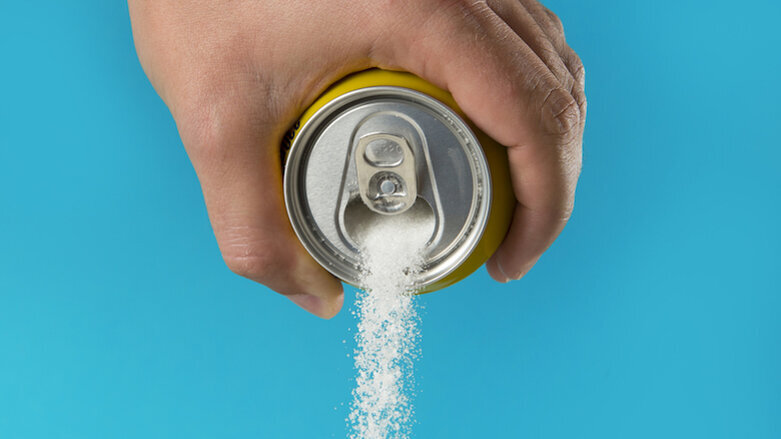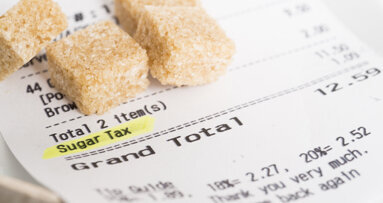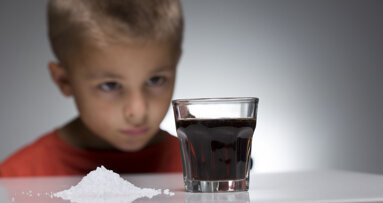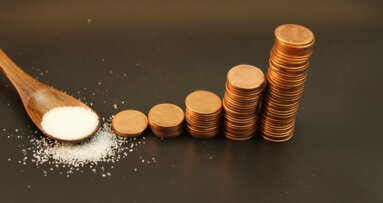JOHANNESBURG, South Africa: In 2018, South Africa introduced a tax on sugar-sweetened beverages (SSBs) based on their respective levels of sugar content with the aim of curbing their consumption. Three years later, a study analysing household purchases in the country found a reduction in the sugar and calories contained within SSBs in addition to a decreased volume of purchases.
According to the study authors, the sub-Saharan region of Africa is facing increased incidences of diet-related non-communicable diseases, including hypertension, cardiovascular disease and diabetes. This is being driven by “rapidly rising intakes of sugar-sweetened beverages (SSBs) and other ultra-processed foods”. South Africa, in particular, suffers from an extremely high burden of these conditions.
To help combat this, the South African government announced its intention in 2016 to introduce a tax on each gram of sugar in SSBs beyond 4 g/100 ml. In April 2018, this tax came into effect—the first of its kind in sub-Saharan Africa.
Using Kantar Europanel data concerning monthly household purchases between January 2014 and March 2019, the research team found that the mean sugar consumption from taxable SSBs fell from 16.25 g per day per capita before the tax’s announcement to 14.26 g per day afterwards. Once the tax was formally introduced, this figure fell to 10.63 g of sugar from SSBs per day.
Prof. Karen Hofman, lead author of the study and director of the South African Medical Research Council/Wits Centre for Health Economics and Decision Science, told Dental Tribune that the success of this levy, along with similar initiatives in countries like Mexico and the UK, showed that it could “most certainly” be replicated in other regions.
“The US, for example, has taxes like this in place in many subnational jurisdictions such as cities and counties, and it is already making a difference there,” she noted. Hofman added that other measures, such as front-of-packaging sugar-content labelling and regulations banning the marketing of SSBs to children, could be complementary measures to help reduce excessive sugar intake further.
The study, titled “Changes in beverage purchases following the announcement and implementation of South Africa’s Health Promotion Levy: an observational study", was published online in the April 2021 issue of the Lancet Planet Health.
WATERLOO, Ont., Canada: The debate around sugar and its impact on oral health and general health has led to some important developments. One of the most ...
DUNEDIN, New Zealand: The debate around sugar and its ill effects on society and how to address this have taken many forms, one of the main measures being ...
CAMBRIDGE, UK: Dental caries is the primary cause of elective hospital admissions among UK children aged 5–9 years, and the disease accounts for nearly ...
SYDNEY, Australia: Researchers from the University of Sydney have revealed that one in seven adolescents are drinking more than two cups of sugar-sweetened ...
WELLINGTON, New Zealand: Increased intake of sugar‐sweetened beverages (SSBs) is associated with a higher risk of Type 2 diabetes, cardiovascular disease,...
DUBLIN, Ireland: Free sugars (FS) are sugars added to food during its production, as well as the sugars naturally present in honey, syrups and fruit juices....
LONDON, UK: The government of the United Kingdom and Great Britain and Northern Ireland has made headlines over the past decade for policies focused on ...
NOTTINGHAM, UK: Given what we know about the relationship between rates of obesity and sugar consumption, it would seem to be common sense that children who...
BRISBANE , Australia: Despite a clear causal link between frequent consumption of sugar-sweetened beverages (SSBs) and dental disease, little is known about...
MELBOURNE, Australia: In an effort to deter people from smoking, cigarette packets are labelled with warnings and graphic images. In a new study, ...
Live webinar
Wed. 25 February 2026
8:00 pm EST (New York)
Live webinar
Tue. 3 March 2026
11:00 am EST (New York)
Dr. Omar Lugo Cirujano Maxilofacial
Live webinar
Tue. 3 March 2026
8:00 pm EST (New York)
Dr. Vasiliki Maseli DDS, MS, EdM
Live webinar
Wed. 4 March 2026
12:00 pm EST (New York)
Munther Sulieman LDS RCS (Eng) BDS (Lond) MSc PhD
Live webinar
Wed. 4 March 2026
1:00 pm EST (New York)
Live webinar
Fri. 6 March 2026
3:00 am EST (New York)



 Austria / Österreich
Austria / Österreich
 Bosnia and Herzegovina / Босна и Херцеговина
Bosnia and Herzegovina / Босна и Херцеговина
 Bulgaria / България
Bulgaria / България
 Croatia / Hrvatska
Croatia / Hrvatska
 Czech Republic & Slovakia / Česká republika & Slovensko
Czech Republic & Slovakia / Česká republika & Slovensko
 France / France
France / France
 Germany / Deutschland
Germany / Deutschland
 Greece / ΕΛΛΑΔΑ
Greece / ΕΛΛΑΔΑ
 Hungary / Hungary
Hungary / Hungary
 Italy / Italia
Italy / Italia
 Netherlands / Nederland
Netherlands / Nederland
 Nordic / Nordic
Nordic / Nordic
 Poland / Polska
Poland / Polska
 Portugal / Portugal
Portugal / Portugal
 Romania & Moldova / România & Moldova
Romania & Moldova / România & Moldova
 Slovenia / Slovenija
Slovenia / Slovenija
 Serbia & Montenegro / Србија и Црна Гора
Serbia & Montenegro / Србија и Црна Гора
 Spain / España
Spain / España
 Switzerland / Schweiz
Switzerland / Schweiz
 Turkey / Türkiye
Turkey / Türkiye
 UK & Ireland / UK & Ireland
UK & Ireland / UK & Ireland
 Brazil / Brasil
Brazil / Brasil
 Canada / Canada
Canada / Canada
 Latin America / Latinoamérica
Latin America / Latinoamérica
 USA / USA
USA / USA
 China / 中国
China / 中国
 India / भारत गणराज्य
India / भारत गणराज्य
 Pakistan / Pākistān
Pakistan / Pākistān
 Vietnam / Việt Nam
Vietnam / Việt Nam
 ASEAN / ASEAN
ASEAN / ASEAN
 Israel / מְדִינַת יִשְׂרָאֵל
Israel / מְדִינַת יִשְׂרָאֵל
 Algeria, Morocco & Tunisia / الجزائر والمغرب وتونس
Algeria, Morocco & Tunisia / الجزائر والمغرب وتونس
 Middle East / Middle East
Middle East / Middle East











































To post a reply please login or register